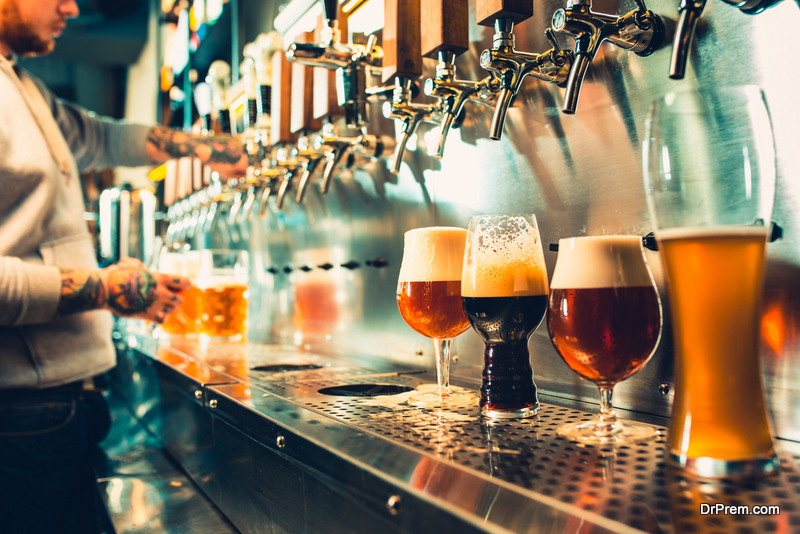Four fifths of people now consider a pub or restaurant’s sustainability credentials when choosing somewhere to go. This is down to us knowing more about climate change and the importance of saving the planet. It’s a key issue of our time, and many pubs are taking note and modifying their operations to enable us to lead a greener life.
For example, many bars and pubs, including the chain Marston’s, have removed single-use plastic from their premises. However, more improvements need to be made to help pubs become more sustainable and reduce their carbon footprint. Here’s three ways your own pub can achieve eco-friendly excellence.
1. Choose sustainable suppliers

Look for suppliers that provide sustainably created products and services. From the bottles you sell and the kegs you use, to the food you offer customers: these can all be ethically sourced. Just look at Garçon Wines, which makes glass bottles from recycled content, supplying clients with recycled products made of food-grade pre-existing PET rather than single-use plastic. Wine is not the only drink your pub can sell sustainably, though. Petainer, for example, creates one-way PET kegs for beer, wine and cider that allow businesses to save considerably on logistics and reduce carbon footprint. These are made of a unique combination of active and passive barriers to minimise O2 ingress and CO2 loss, without affecting the flavour of the drinks inside.
While containers are a huge part of the problem, there are certainly others. This includes carbon, the key component that makes beer fizzy. Breweries create high volumes of it during production and delivery, with a report from 2018 finding that each pint of lager produced generates 780g of CO2. The good news, though, is that many beer companies are adopting less energy-intensive processes. It’s now not as difficult as it might have once been to source renewable carbon dioxide supplies, power breweries by solar power or use blockchain technology to track ingredient origins. So, be sure to work with businesses implementing these practices.
2. Avoid food waste

All too often businesses offering food overlook the basics, which results in over-ordering produce and failing to use it in time. Staggeringly, more than half of food is wasted in the UK hospitality industry yearly due to over-preparing, spoilage and customers not finishing meals. This has devastating consequences for the environment considering the energy and resources involved in growing, packaging and delivering food. Wasted produce enters landfill where it rots and produces methane — a powerful greenhouse gas.
Pubs can reduce food waste by ordering the right qualities of produce, following stock rotation procedures and keeping storage areas clean. Try to adopt a ‘first in, first out’ approach to your food deliveries, as this will prevent items from spoiling. Clearly label products with use-by-dates too, to ensure food doesn’t go to waste.
Another thing to consider is portion size. Serving too big plates of food will likely mean more produce goes to waste. You can combat this by encouraging customers to take leftovers home. If you can’t avoid chucking food in the bin, though, ensure it’s recycled instead. You might want to check out London-based recycling company Bywaters, which provides food waste bins and uses a process called anaerobic digestion to purify the methane gases released during decomposition. This is then fed back into the National Grid or used as high-quality fertiliser.
3. Embrace digital processes

Going digital not only speeds up your business operations, but also has a positive impact on the environment. One of the benefits of digitising things is reducing paper usage at your pub. For example, if your staff use a notepad and pen to jot down customers’ orders and you serve hundreds of people daily, this creates a lot of waste. Fortunately, there are devices available for staff to take orders digitally, thus reducing paper waste. Another way of doing this is by offering alternatives to physical receipts by giving the option to receive it as an email. This is practical for the business, and also means customers are less likely to lose their receipts.
You could even offer the option for visitors to order their food and drinks via an app to make the process easier, faster and more eco-friendly. This can lessen the need for paper menus altogether. Chains such as Wetherspoons, Greene King and Vintage Inns are known for doing this, especially during the pandemic.
Article Submitted By Community Writer


